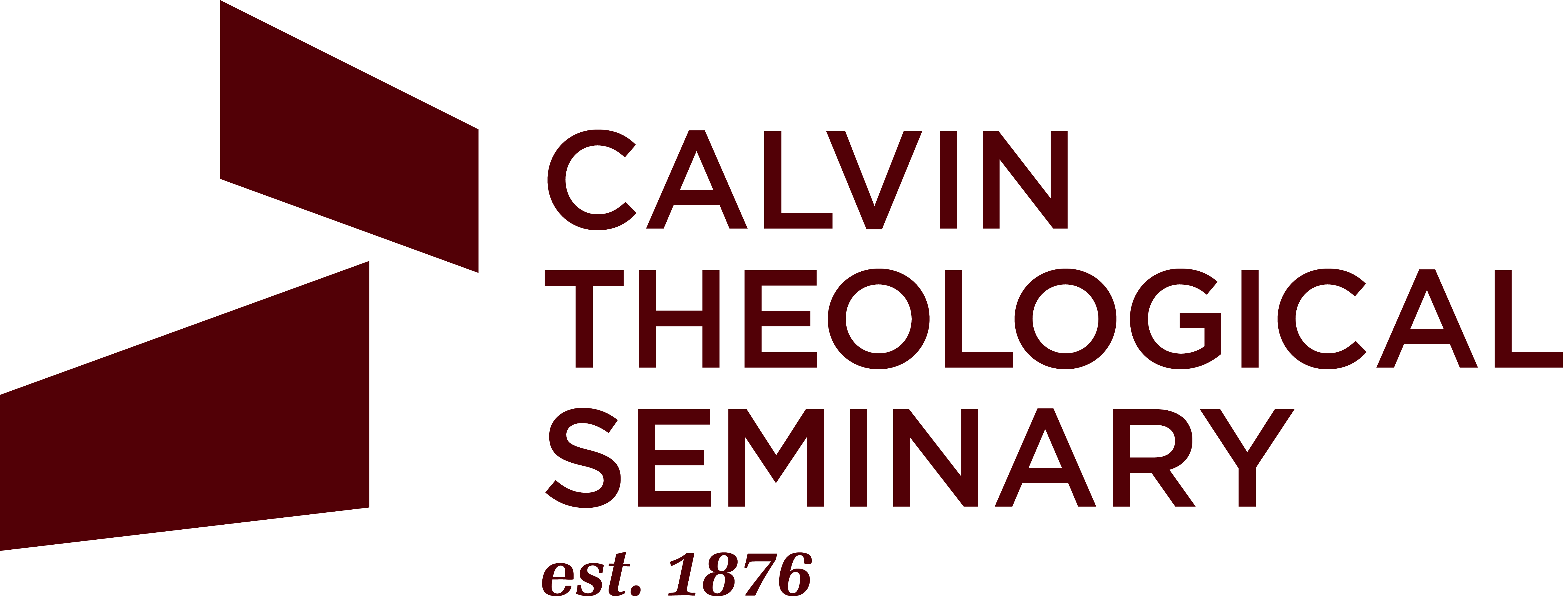Defeating the Powers of Darkness and Establishing a Kingdom of Love
Published by Calvin Seminary
In chapter twenty-seven of his gospel, when Matthew describes the temple curtain being torn, the earth shaking, and the rocks splitting (verse fifty- one), he was describing the death of Christ shaking the world at its core, theologian N.T. Wright told a group of Calvin Seminary students and faculty during the Stob Lecture, held earlier this year in the seminary chapel.
“The crucial thing that comes through again and again is that Christ’s crucifixion sent shock waves through the whole creation,” said Wright in the subsequent Q&A presentation moderated by John Witvliet, director of the Calvin Institute of Christian Worship. “Christ’s death and rising showed the victory over the dark powers of evil. … The cross robs them of their power.”
In the atonement, said Wright, something explosive has happened—the powers that “have had the world in a stranglehold” lost their grip and a great force of love triumphed, saving the world and its people from sin. “God has lowered himself to the world and put it right. … Jesus comes to a place where sin is heaped up and dies for that sin.”
The Stob Lecture program, supported by an endowment from the Stob family, is jointly run by the college and the seminary. Beginning in 2017, each year the Stob Lectures will underwrite a January Series speaker who has expertise in apologetics, ethics, or philosophical theology. Combining the Stob Lectures and January Series provides an opportunity to use the endowed lectureship to reach a worldwide audience. Because the January Series has significant recognition as a platform to discuss important ideas from an intellectual and theological perspective, the leadership of the seminary and college believe this new format will broaden the scope and impact of the Stob Lectures.
Reflecting on this most recent Stob Lecture, Ronald Feenstra, academic dean and professor of systematic theology, noted, “N.T. Wright is one of this generation’s finest New Testament scholars. In his Stob Lecture Colloquium, he highlighted ways in which the cross of Jesus is God’s victory over evil powers and brings healing to the world. Wright helpfully notes the role of the cross in healing the fallen creation and leading to the new creation being prepared by God for his people.”
In his lecture, Wright said he wants to expand the idea that Christ’s death on the cross was, as commonly believed by a range of evangelical Christians, an act that absolved people from their sins. While Wright believes in this teaching, which is also called “penal substitution,” and emphasizes that Jesus did defeat sin on the cross as our substitute, Wright argues there is much more to what happened on the cross that is often neglected: the cross, he said, has opened the door to the full transformation of creation. “We need a larger vision of the biblical narrative if we are to understand, preach, and live out the message and meaning of the cross,” he said.
Wright argued that the doctrine of penal substitution, when separated from this larger picture of the restoration of creation, can easily be distorted into the idea of “God being determined to get his revenge on someone for something and then taking it out on someone who is innocent. … The trouble is, people can take this idea and use violence to justify what they believe is right.”
Asked about heaven during the Q&A, Wright said, “The whole emphasis of the New Testament is not interested in where people go when they die. What is significant is about the kingdom coming to earth as it is in heaven.”
Wright is an award-winning author with nearly fifty published works, including Simply Christian and his most recent book, The Day the Revolution Began: Reconsidering the Meaning of Jesus’ Crucifixion.
Preparation for Reaccreditation
Calvin Theological Seminary is preparing for a comprehensive evaluation visit by the Association of Theological Schools. The ATS evaluation committee is scheduled to be on campus in March 2018. If you have any comments concerning Calvin Theological Seminary’s qualifications for continued accreditation, please send them in writing to the President or Board Chair of Calvin Theological Seminary (3233 Burton St. SE, Grand Rapids, MI 49546) and/or to the Commission on Accrediting of the Association of Theological Schools (10 Summit Park Drive, Pittsburgh PA 15275-1110).
by Chris Meehan, Calvin Seminary Diploma in Ministry graduate; commissioned pastor at Coit Community Church
Share
Visit Calvin Theological Seminary’s Campus
We can’t wait to host you on campus! Schedule your visit today, or, if you need more time to find a date that works for you, please request information so we can continue the conversation about supporting your calling!
